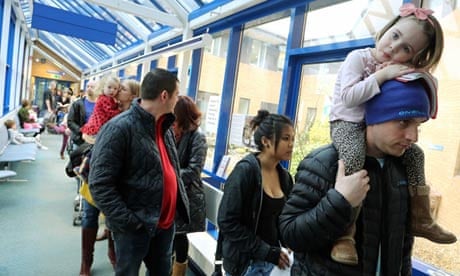A 25-year-old man has become the first person with measles to die in the Swansea outbreak as health authorities in Wales try to bring the highly infectious disease under control.
Laboratory tests by Public Health Wales (PHW) confirmed the diagnosis within hours of the man's body being found in a flat in Swansea. He has been named locally as Gareth Williams.
Investigations by the coroner as to whether the measles caused the death are continuing. If it were the reason, it would be the first measles fatality in the UK for five years.
Marion Lyons, PHW's director of health protection, said: "Public Health Wales laboratory tests have confirmed a diagnosis of measles in a 25-year-old male from Swansea who died on Thursday 18 April.
"The tests confirm only that the deceased had measles at the time of his death. Further investigations are being undertaken by the Swansea coroner to establish the cause of death.
"My sympathies are with the family at such a tragic time. Whatever the cause of death in this case, we should not be surprised if, as the outbreak grows, we start to see deaths in Wales."
The epidemic, centred on Swansea, has involved more than 800 cases, 77 of which have resulted in hospital treatment. Health officials in England are monitoring whether it is now spilling over the border. Many of the cases have involved 10- to 18-year-olds.
Numbers are rising steadily and spreading north from the south of Wales, despite special immunisation clinics being held by health authorities at hospitals and schools.
Health officials have repeatedly warned parents of children who have not had the triple measles, mumps and rubella (MMR) vaccine to arrange vaccination. One local headteacher said he was concerned by a lack of response by some parents to a special clinic at his school.
Lyons said: "Measles is a potentially fatal disease and around one in every 1,000 people who contracts measles in developed countries will die.
" Those not fully vaccinated with two doses of MMR are highly likely to catch measles, which is highly contagious. We know that there are unprotected people in all age groups but we have particular concerns about the 10 to 18 age group. We are therefore urging all parents of children who have missed doses of MMR to arrange vaccination for them as a matter of urgency.
"The MMR vaccine is recommended by the World Health Organisation, UK Department of Health and Public Health Wales as the most effective and safe way to protect children against measles. The alarming numbers of cases of measles, and continuing spread of the disease in Wales, illustrates how vital it is for parents to get their children vaccinated."
She added: "Symptoms of measles include fever, cold-like symptoms, fatigue, conjunctivitis and a distinctive red-brown rash that appears a few days into the illness. " Anyone who thinks they or their child may have measles should speak to their GP immediately."
Public health officials in Shropshire are monitoring measles infections, particularly in the Oswestry area. Twenty-three cases have been reported in Shropshire so far this year, many in recent days and most in the Oswestry area, where historically families have crossed the border from Wales for schooling and visits to GPs.
Of the 808 cases reported in the Swansea crisis, 70 are in Powys, where one in four teenagers did not have two MMR jabs as infants. The overall number of cases rose by 43 between Tuesday and Thursday, indicating just how fast the epidemic is still growing.
Health chiefs say one dose of the MMR will protect 90% of children and the recommended two doses will provide 99% protection. About 2 million children in England and Wales have not been fully immunised against measles, experts estimate.
In north-east England – where 214 cases of measles in a separate outbreak have been confirmed and another 220 are suspected – school nursing teams are offering jabs for unvaccinated children in the hotspot area of the Tees Valley. Parents are being sent letters and consent forms.
About two million children in England and Wales have not been fully immunised against measles, experts estimate.
The outbreak in Swansea has attracted a lot of attention, but there have been rising numbers of cases across the whole country in recent years, with more than 2,000 confirmed in 2012.
There were outbreaks in north-west England, Sussex and among Travellers. As the cohort of children who were not given the MMR vaccine because of the scare caused by Andrew Wakefield's now-discredited theory about autism grow older, the chances of further large outbreaks increase. There were nearly 400 cases in last year's outbreak in Sussex and there have been 635 laboratory confirmed cases on Merseyside since February last year.
"I think we have been really lucky up to now," said Dr Helen Bedford, senior lecturer at the paediatric epidemiology unit of the UCL Institute of Child Health. "With infectious diseases such as measles, the spread depends very much on how vulnerable and infected people mix. There is much greater mixing in the secondary school setting."
Last year, a quarter of those who got measles were aged 10 to 15.
Bedford said there were two main groups of parents who had not vaccinated their children.
One group intended to go for immunisation but did not do it or did not complete the course. "It is a lot about inaccessible services and maybe among disadvantaged parents who do not have enough money," she said. For these parents, there appeared to be more pressing concerns than immunisation.
The other group had made a choice. "They don't believe the benefits of immunisation outweigh the risks," Bedford said. "This is partly because we're not used to seeing these infectious diseases. Our children don't tend to get ill these days. They think the worst their child can get is chicken pox."











Comments (…)
Sign in or create your Guardian account to join the discussion